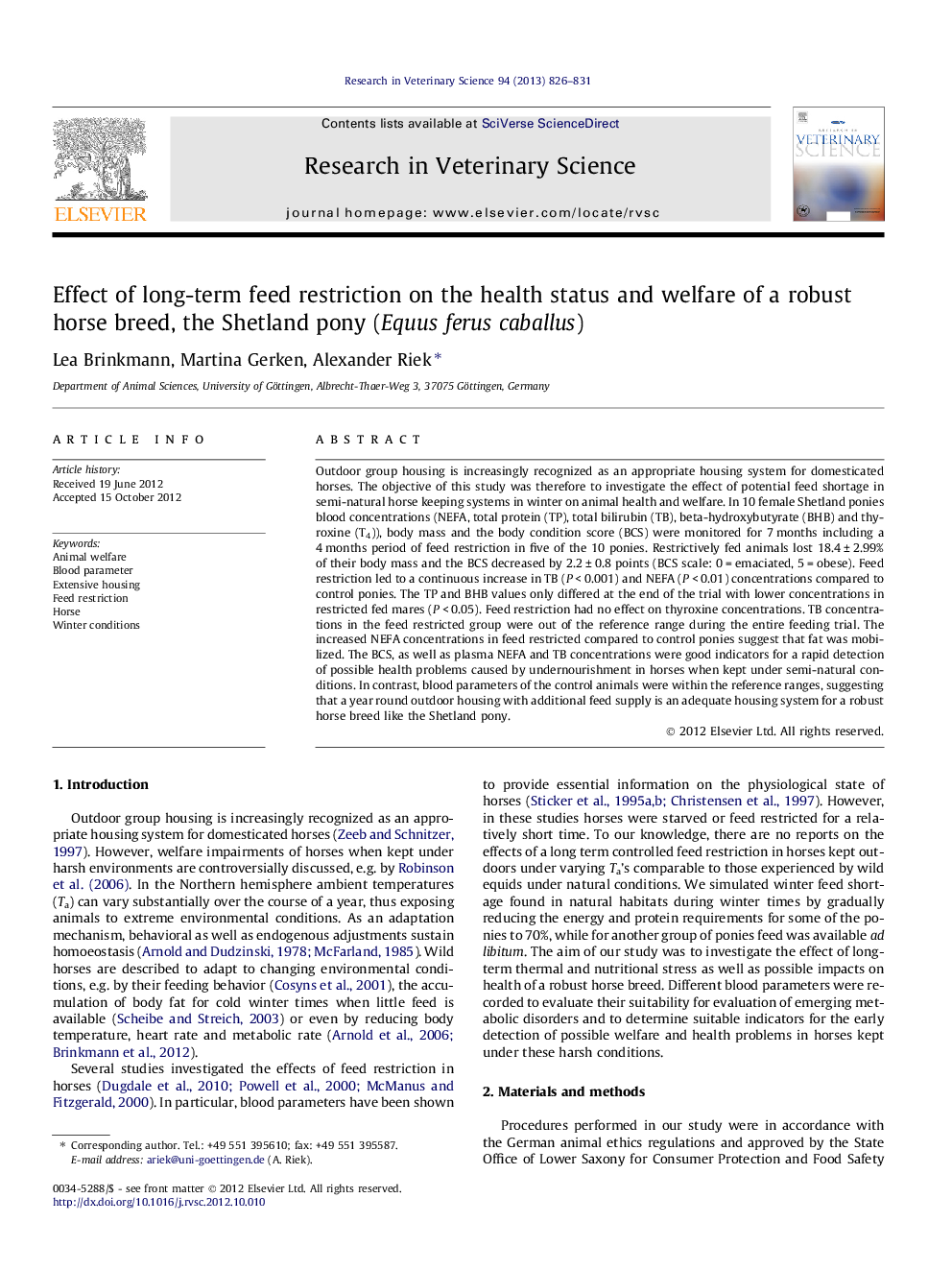| Article ID | Journal | Published Year | Pages | File Type |
|---|---|---|---|---|
| 5795020 | Research in Veterinary Science | 2013 | 6 Pages |
Outdoor group housing is increasingly recognized as an appropriate housing system for domesticated horses. The objective of this study was therefore to investigate the effect of potential feed shortage in semi-natural horse keeping systems in winter on animal health and welfare. In 10 female Shetland ponies blood concentrations (NEFA, total protein (TP), total bilirubin (TB), beta-hydroxybutyrate (BHB) and thyroxine (T4)), body mass and the body condition score (BCS) were monitored for 7 months including a 4 months period of feed restriction in five of the 10 ponies. Restrictively fed animals lost 18.4 ± 2.99% of their body mass and the BCS decreased by 2.2 ± 0.8 points (BCS scale: 0 = emaciated, 5 = obese). Feed restriction led to a continuous increase in TB (P < 0.001) and NEFA (P < 0.01) concentrations compared to control ponies. The TP and BHB values only differed at the end of the trial with lower concentrations in restricted fed mares (P < 0.05). Feed restriction had no effect on thyroxine concentrations. TB concentrations in the feed restricted group were out of the reference range during the entire feeding trial. The increased NEFA concentrations in feed restricted compared to control ponies suggest that fat was mobilized. The BCS, as well as plasma NEFA and TB concentrations were good indicators for a rapid detection of possible health problems caused by undernourishment in horses when kept under semi-natural conditions. In contrast, blood parameters of the control animals were within the reference ranges, suggesting that a year round outdoor housing with additional feed supply is an adequate housing system for a robust horse breed like the Shetland pony.
